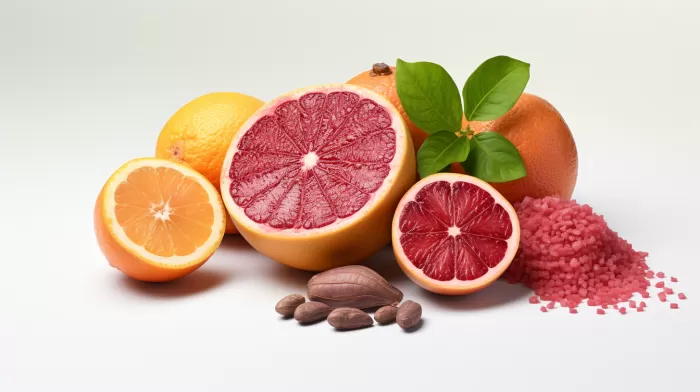Cholesterol is crucial to the health of your heart and arteries, and maintaining a healthy cholesterol level involves having an adequate amount of HDL (“good” cholesterol) and lesser amounts of LDL (“bad” cholesterol). There are several supplements that can support you in achieving a better cholesterol profile. However, you shouldn’t forget about the importance of a heart-healthy diet and regular exercise.
Bergamot Extract
Bergamot, the citrus bergamia risso plant, is an antioxidant with high levels of flavonoids that protect cells from oxidation and free-radical damage. It’s the ingredient that gives Earl Grey tea its unique flavor and acts as a scent in many perfumes. In the body, bergamot blocks an essential enzyme in the production of cholesterol, similar to what pharmaceutical statin drugs accomplish.
Two studies have demonstrated bergamot’s cholesterol-lowering properties. In one study that selected participants with total cholesterol and triglyceride levels of 250 or higher, each participant took 500-mg doses of citrus bergamot polyphenolic extract for 30 days. The results showed a 40 percent increase in HDL, a decrease in blood triglycerides, and a nearly 40 percent decrease in LDL for those that took two doses.
Red Yeast Rice
Red yeast rice has received attention for being the natural source of a statin, cholesterol-lowering drug. A study published in the Annals of Internal Medicine showed that a red rice yeast supplement worked as well as a statin prescription to lower LDL.
Unlike statin drugs, which are composed of single statins, red yeast rice retains a natural mixture of statins. This variety is believed to be the reason it doesn’t cause the same debilitating side effects as the drugs.
The risk of taking red yeast rice on its own is linked to its inhibition of the body’s natural production of coenzyme Q10. This coenzyme is necessary for the proper functioning of muscles, including the heart muscle. If you decide to take red yeast rice as part of your cholesterol-balancing therapy, you should also include a daily CoQ10 supplement.
Niacin
Niacin is a B vitamin (nicotinic acid) that helps the body convert carbohydrates into energy, while also maintaining the health of the nervous system, digestive system, skin, hair, and eyes. It has traditionally been used to help raise HDL cholesterol levels.
Niacin is available in food and most multivitamins, but if your cholesterol is high, you might need extra amounts. However, one side effect of niacin is it causes facial flushing and a hot feeling in the body. To combat this side effect, taking an aspirin before the niacin supplement has been shown to reduce or prevent flushing.
Getting Balanced
Unbalanced cholesterol levels can have potentially serious effects on your health. If you have a blood test and find your bad cholesterol levels are too high or your good levels are too low, it’s necessary to take action.
For cholesterol, a natural approach includes incorporating more soluble fiber and omega-3 fats, reducing saturated fats, and using more olive oil. Include more fish and nuts in your diet and reduce consumption of meat, milk products, and fried foods. Regular exercise and not smoking are also essential.
In addition to these lifestyle changes, supplementing with bergamot, red yeast rice and CoQ10, and niacin (with aspirin to prevent flushing) can help create a better balance of HDL to LDL.
Get your cholesterol levels checked every three months and aim for balance within six months to a year. Persistence with natural solutions can prove effective. However, if your numbers don’t show significant improvement within a year, consider discussing the issue with your primary care physician for more specific guidance or the possibility of statin drugs.



